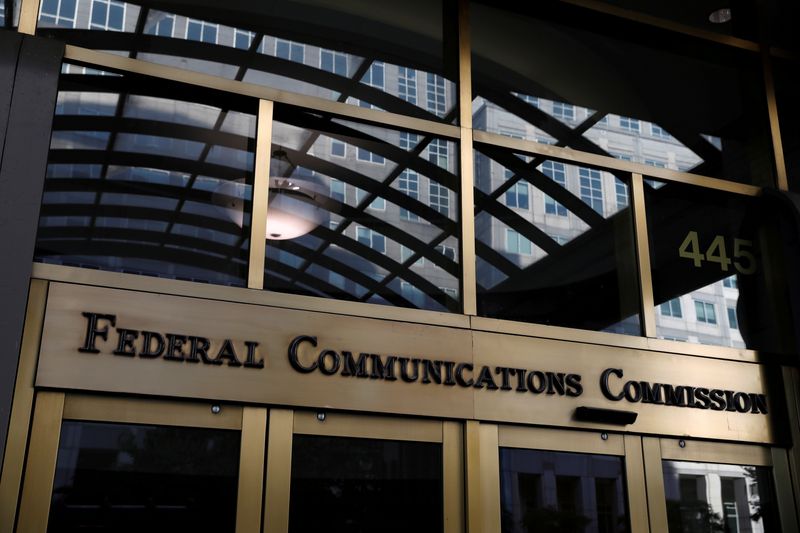By David Shepardson
WASHINGTON (Reuters) -A U.S. appeals court on Friday rejected a legal challenge to the Federal Communications Commission’s (FCC) 2020 decision to shift much of a key spectrum block set aside for auto safety to accommodate the burgeoning number of wireless devices.
The Intelligent Transportation Society of America and the American Association of State Highway and Transportation Officials last year brought a legal challenge in the U.S. Court of Appeals for the District of Columbia seeking to reverse the FCC's reallocation of 60% of the 5.9 GHz band spectrum block.
The spectrum block was reserved in 1999 for automakers to develop technology to allow vehicles to talk to each other to avoid crashes but has so far gone largely unused.
NCTA – The Internet & Television Association said the decision "is an enormous victory for American consumers" that "enables that important 5.9 GHz spectrum to provide consumers with even more reliable high-speed Wi-Fi and access to next-generation automotive safety applications."
In 2020, the U.S. Transportation Department said the FCC plan was "a particularly dangerous regulatory approach when public safety is at stake."
FCC Chair Jessica Rosenworcel said the decision "upholds the FCC's broad authority to manage the nation's airwaves in the public interest ... Today's decision recognizes that by allowing this spectrum to evolve we can advance newer safety technologies and grow our wireless economy."
The FCC voted to shift 30 megahertz of the 75 megahertz reserved for Dedicated Short-Range Communications (DSRC) to a different automotive communications technology called Cellular Vehicle-to-Everything, or C-V2X, while moving the other 45 megahertz to Wi-Fi use.
ITS said it was disappointed in the ruling but urged the Transportation Department to act swiftly on CV2X "to provide regulatory clarity and certainty for industry to continue to innovate to save lives on our nation’s roads."
Automakers opposed the split on safety grounds, while major cable, telecom and content companies say the spectrum is essential to support growing Wi-Fi use.
Government studies have suggested the technology, if widely adopted among U.S. vehicles, could prevent at least 600,000 crashes annually.
